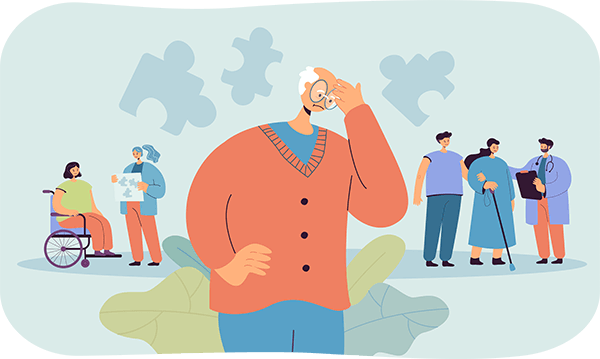
Quality of life
at home
ADatHOME: increasing the skills, knowledge and attitudes of caregivers on how to improve the quality of life (QoL) of people with Advanced Dementia (PwAD) in their home environments.

ADatHOME: increasing the skills, knowledge and attitudes of caregivers on how to improve the quality of life (QoL) of people with Advanced Dementia (PwAD) in their home environments.

The symptoms of Alzheimer’s disease worsen over time. In the advanced stages individuals lose the ability to respond to their environment, to continue a conversation, and even to control movement. Significant personality changes are produced and individuals need more specialized care.
The ADatHOME project aims to increase the skills, attitudes and knowledge of carers who care for people with Advanced Dementia in home settings, thus improving the users’ quality of life.
The lack of specific care tools in the different stages of the disease is what gives meaning to this project.
The person living with Alzheimer may have problems during the process but can always benefit from the interaction in many ways that the ADatHOME project aims to show.
The ADatHOME project is launched with the main objective of increasing the skills, knowledge and attitudes of caregivers on how to improve the quality of life (QoL) of people with Advanced Dementia in their home environments.


It’s only a book, but it comes in many shapes and formats of your choice
